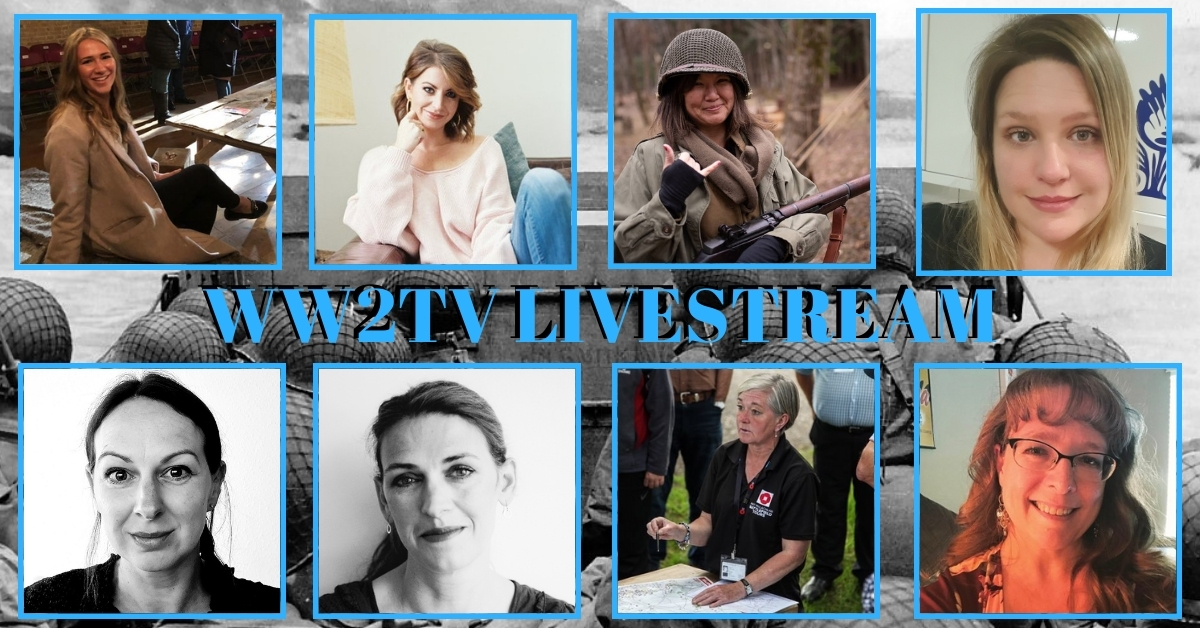In 2016, in a Guardian article titled ‘Big Books by Blokes about Battles – Why is History Still Written Mainly By Men?”, Sir Antony Beevor made so bold as to suggest that, “only in the last 20 years or so, when the study of warfare widened and deepened dramatically to include the fate of individuals – civilians as well as soldiers – have women started to show an interest”. It’s the kind of quote that gets quoted a lot, for devilry if nothing else.
A week is a long time in politics. Four years is a significant epoch for military historians. With respect to Sir Antony, I’d suggest that some women have had much broader interests for at least two decades and, yes, I am generalising. But I don’t believe I’m doing so unfairly. However, I’d also bet my shirt on some of the all-female WW2TV panel next week sharing my view – they may not, of course.
When Liddell-Hart showed his appreciation for the opposing army’s perspective in ‘The Other Side of the Hill’, he was castigated for observing that, naturally, some of his detractors couldn’t see things objectively. Liddell Hart was a fool. Blind to malfeasance among the German generals, or, if not blind, he was certainly myopic to those observations’ validity. In the same light, when a woman comments on a woman’s perspective, it can lead to complex misassumptions. So, to reduce my own myopia at least, I’ll draw on a little science to support the presentation of an uncomfortable truth (and I’ll also offer the new punchline to a joke in such poor taste even Frankie Boyle would give it a miss).
As a caveat, these are personal views. I know they are controversial. But here’s the thing: when it comes to an interest in military history being taken seriously, women can be their own worst enemies.
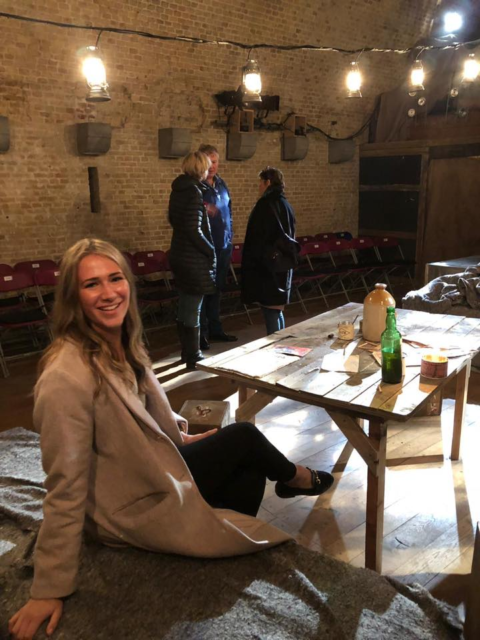
Whether we’re writing about war, touring a battlefield, broadcasting, presenting, encouraging our peers to remember or nurturing the next generation’s propensity to never forget … it’s my profound belief that women with an interest in military history should a) not be backwards at coming forwards, obviously, but, b) never play the chromosome-card, and b) grow a pair, for heaven’s sakes, if some other bugger does. Liddell-Hart might have redeemed himself if he’d written a lot more about a lot less.
Surprised? Don’t be. Some of us abhor the line being drawn between feminism and anti-feminism, but then, some of us have been too busy building with those metaphorical bricks and mortar to realise some bugger thought there should ever be a glass ceiling. (I have to say, having a glass ceiling is a good way to let a bit of light in sometimes. Plus, at my age, if one hasn’t learned to play the game then there’s just, no, fun. Anyway.)

Who am I to make such a claim about women letting the side down? I am an enthusiast historian. Which is the worst kind, the kind with the courage to posit serious and yet perhaps naïve questions on purpose, and then voice reasonably well-researched but piquant counterfactuals on forthcoming answers: I’m also a writer by trade, so I also have a natural appetite for stimulating debate. Discourse delivers dividends, does it not? My specificity of expertise lies in neither one world war or another – unless we’re discussing the impact of rhetoric in communications – which, believe me, is a very rusty double-edged sword when you start enthusing about such things to Men Who Know More Than You Do About All Matters Military.
Mind you, aren’t women their own worst enemy in general? This whole debacle sits precariously close to the field of agnotology, which as all men AND women know, is the study of pure ignorance.
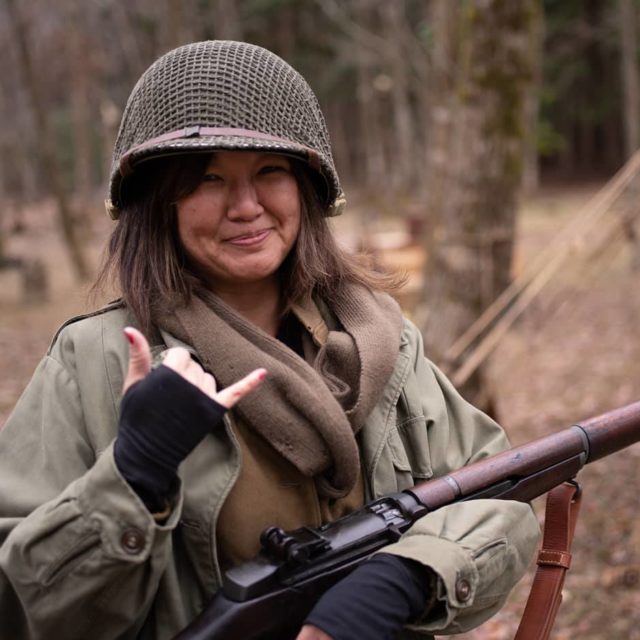
What don’t we know and why don’t we know it? What keeps ignorance alive or lets it be used as a political instrument? Is it a fact that men and women think differently? Hello, breasts. Of course, the answer is ‘yes’. Still, isn’t it true that we have similarities and parities in our behaviour that often go un-noted? To quote a friend, “sometimes you don’t need to have a dick, to be a complete and utter prick”. Whether it’s not knowing why men fall asleep so fast, or not realising – a personal experience here – that the only woman in the room might not be the tea-girl, she might be the expert who’s teaching the course … ignorance is more than a lack of insight: it’s the outcome of cultural, societal and political evolution. But let’s get back to history.
As with most things in life, if you are good enough then you are good enough. Seminal attitudes are changing, and I used that word advisedly, but gender has no part to play in limiting the reach of a person’s enthusiasm for a subject or in defining that person’s claim to credibility for the subject matter at hand. However, when we think about military history, and in particular the events post-1939, there’s a nuance worth considering that may divide the room or at least make you feel uncomfortable.

Warfare is an inherently physical endeavour. Spoiler: primitive instincts kick in early when the going gets tough – the intensity and frequency of female aggression is inherently constrained by a greater propensity for females, not males, to prioritise the survival of their offspring – which means men, traditionally, have suffered the ignominy of going off to war first. Women stayed behind, celebrating their good fortune to plough the fields and scatter while the boys did boy-things, fighting at the front. As a result of our manifest competence in those physical duties of the early twentieth century though, much was also done to advance the notion ‘Women Can Too’. This led to some women being curious about the theory and practice of war in general, analysing the minutiae of events and, occasionally, proposing how things might have been done better at a much lower cost.
What’s more, women generally excel at articulating complex points in a way that not only pre-empts logical counterfactuals but also handles emotively biased responses in advance. “Does my bottom look big in this,” is neither a simple nor a rhetorical question, as wise men know if they draw on common sense. So, if you’re enthusiastic about military history and you happen to be female then the auspices look good, except …
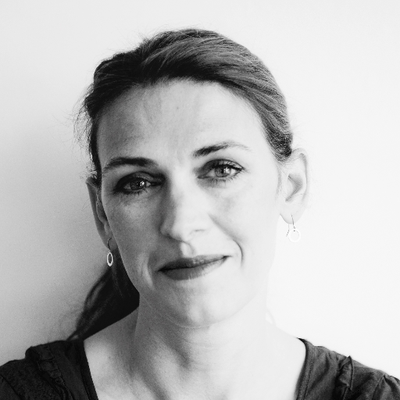
The truth is, the second world war is the penumbra in which much of modern society has been defined. In particular, this period of conflict has given women an opportunity to advance fresh ideas to fuel the debate about what did or did not happen, how, and why. How? Well, prior to and during the second world war, views on conflict were documented and delivered with a top-down perspective by men. After that war, with an increasing amount of momentum, men have had to acknowledge women’s parity in many disciplines, the least of which is an ability to also research and communicate effectively.
Unfortunately, the good Lord and the book-buying public both work in mysterious ways, which means that while there are still more men in the audience than women, women may need to be smarter about how they engage with that audience. This is not the same thing as ‘brains not breasts’, nor is it a flag-bearing exercise for ‘breasts please, then brains’. It’s quite simple: if women stand up and make it clear they can be judged on their work alone, everyone wins.
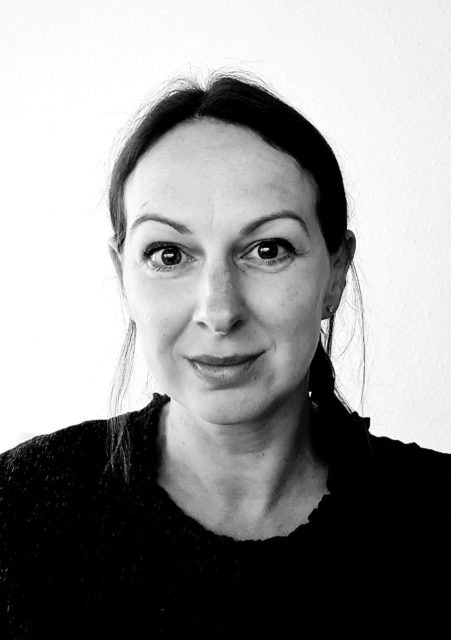
In reality? Men goof off. Whether they’re being naïve, disingenuous or just plain stupid, there’s always one idiot who doesn’t realise comments about a person’s physical attributes really weren’t being invited as part of a serious discussion. There is though, I’m afraid, a tendency for some women to react counter-productively. Me? I find a whiff-whaff approach to be the most effective one, using dry wit as a rapid but very acceptable rebuttal to mis-placed misogyny or sexism in general. (That old joke isn’t funny, by the way. It’s the one that asks why women haven’t been to the moon. Frankie Boyle might hesitate if he knew the real answer isn’t that the moon doesn’t need cleaning – it’s that women are either too busy cleaning up the mess men made here on Earth, or they couldn’t be arsed to make a stop-over while they were shooting for the stars.)

A smarter offence – again, this is a personal opinion – might be to make appropriate use of physical advantage but, at the same time, to prepare an even smarter mental defence: know how get yourself out of trouble just as fast as you realise you might be rapidly getting into it. Handle unsolicited or inappropriate flak with dignity, for a start. Don’t wobble your lip and whine, ‘woe is me’, if your work comes under scrutiny or your contribution attracts unwelcome attention. Rather, give your detractors something to think about; share knowledge; relish the chance to learn from your peers; surface insights in a professional way that gives your voice credibility and shuts down the conversation about your gender in advance. Learn something from Liddell-Hart’s mistakes. Nobody knows everything, after all.
Still, to Sir Antony’s point – women have been developing their interest via peripheral echelons, such as the lives of civilians rather than soldiers – is not wholly invalid.

Am I interested in the role of women during the second world war? Their work on the home front, their heroism and intelligence, and their influence on the outcomes of the war in general – subject to societal norms of the era? Of course, I am. Aren’t you? However, I am far more interested in exploring the design influences that draw a line between the Renault FT and the modern-day Renault 4; what really happened to Hans Kammler; the life story of Jack Easonsmith; the untapped legacy of Geoffrey Pyke; Maskelyn; what was the reason for only giving three hours’ training on how to use a PIAT when more time would have clearly improved its effectiveness … and why aren’t rhetorical skills and oracy taught to prospective commanding officers today?
The fact of the matter is, the second world war was documented in great detail. We all have the most marvellous range of ingredients with which to satisfy people’s appetites – and not all chefs are men.
Written by Merryn Walters
Merryn is a writer who, since 1971, has been choosing words carefully, writing them down, and selling those sentences to unsuspecting customers. Tricky subjects are a speciality. With a background in journalism and strategic, commercial content creation, she’s also an excitable enthusiast-historian, fascinated by the rhetoric and oracy of war during the second world war. Her writing spans many strategic and tactical aspects of a subject and often looks at the impact of language. She’s based in north Norfolk. When she’s on tour, it’s often on a Triumph.
